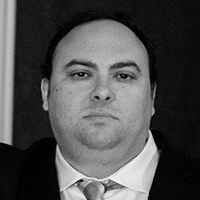Anderson White Collar Crime Lawyer, California
Sponsored Law Firm
-
 x
x

Click For More Info:
-
Magid Law
112 Main Street Weaverville, CA 96093» view mapCriminal Defense Law Experienced, Aggressive Criminal Defense
Hiring a criminal defense attorney is one of the most important decisions you will ever make. Don’t be a victim of the system. Choose Benjamin Magid as your attorney.
800-761-7580
Not enough matches for Anderson White Collar Crime lawyer.
Below are all Anderson Criminal lawyers.
Jacob Levin
✓ VERIFIEDFelony, Misdemeanor, Domestic Violence & Neglect, Child Custody, Custody & Visitation
Mr. Levin attended law school at UC Hastings in San Francisco. He was the president of the Jewish Law Students Association and founded the UC Hastings... (more)
Eric Alan Berg
Immigration, Divorce & Family Law, Criminal, Accident & Injury
Status: In Good Standing Licensed: 39 Years
Joseph A. Gazzigli
White Collar Crime, Criminal, Products Liability, Personal Injury
Status: In Good Standing
Douglas Lee Gardner
Other, Employment Discrimination, Juvenile Law, DUI-DWI, Criminal
Status: In Good Standing
Michael Jeffery Fannon
Education, Landlord-Tenant, Criminal, Medical Malpractice
Status: In Good Standing
 Benjamin Magid Weaverville, CA
Benjamin Magid Weaverville, CA Practice AreasExpertise
Practice AreasExpertise

